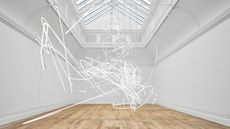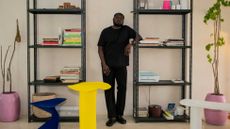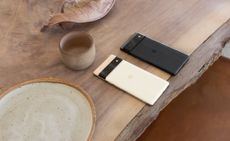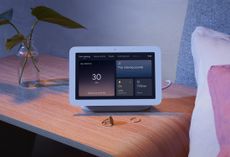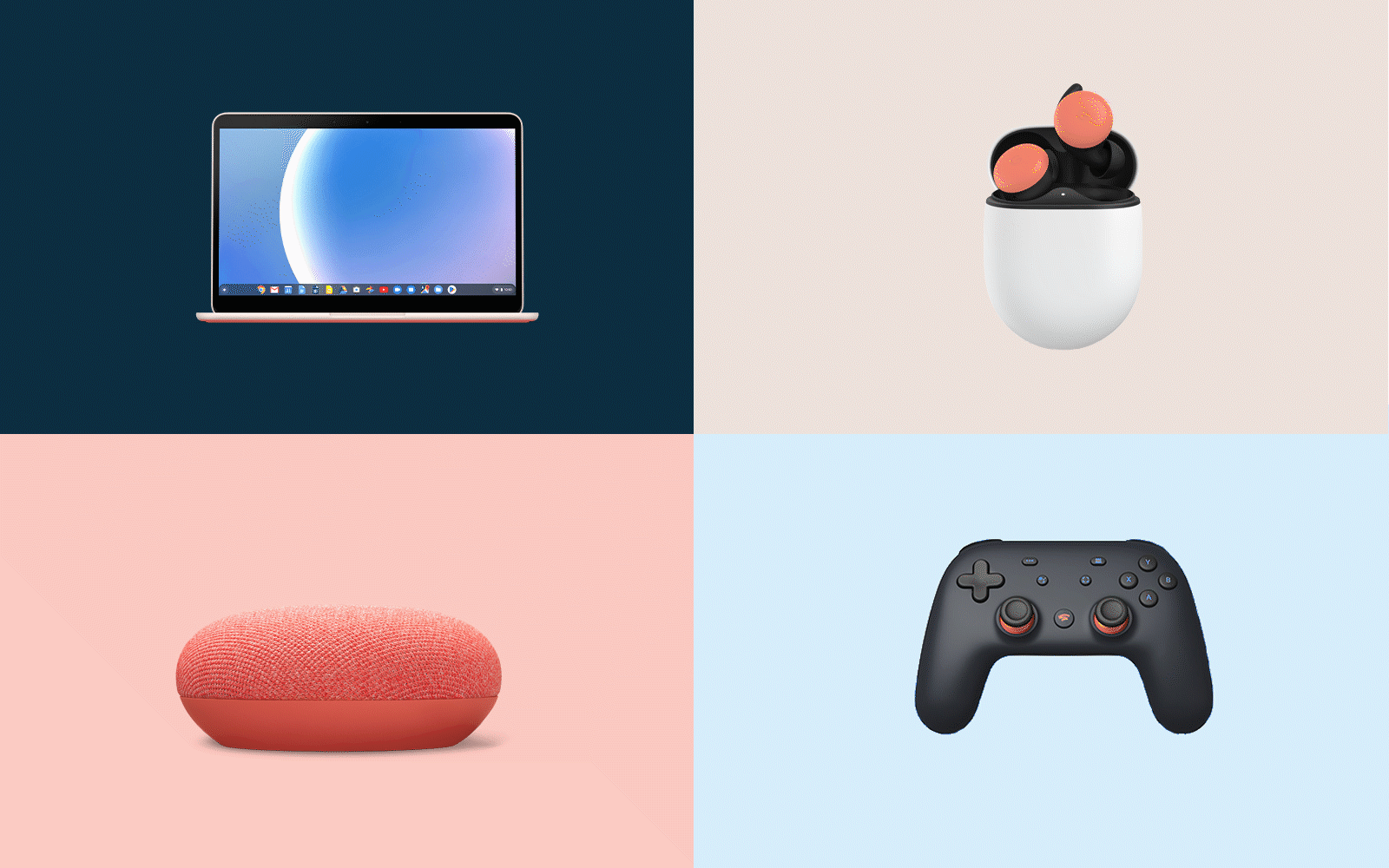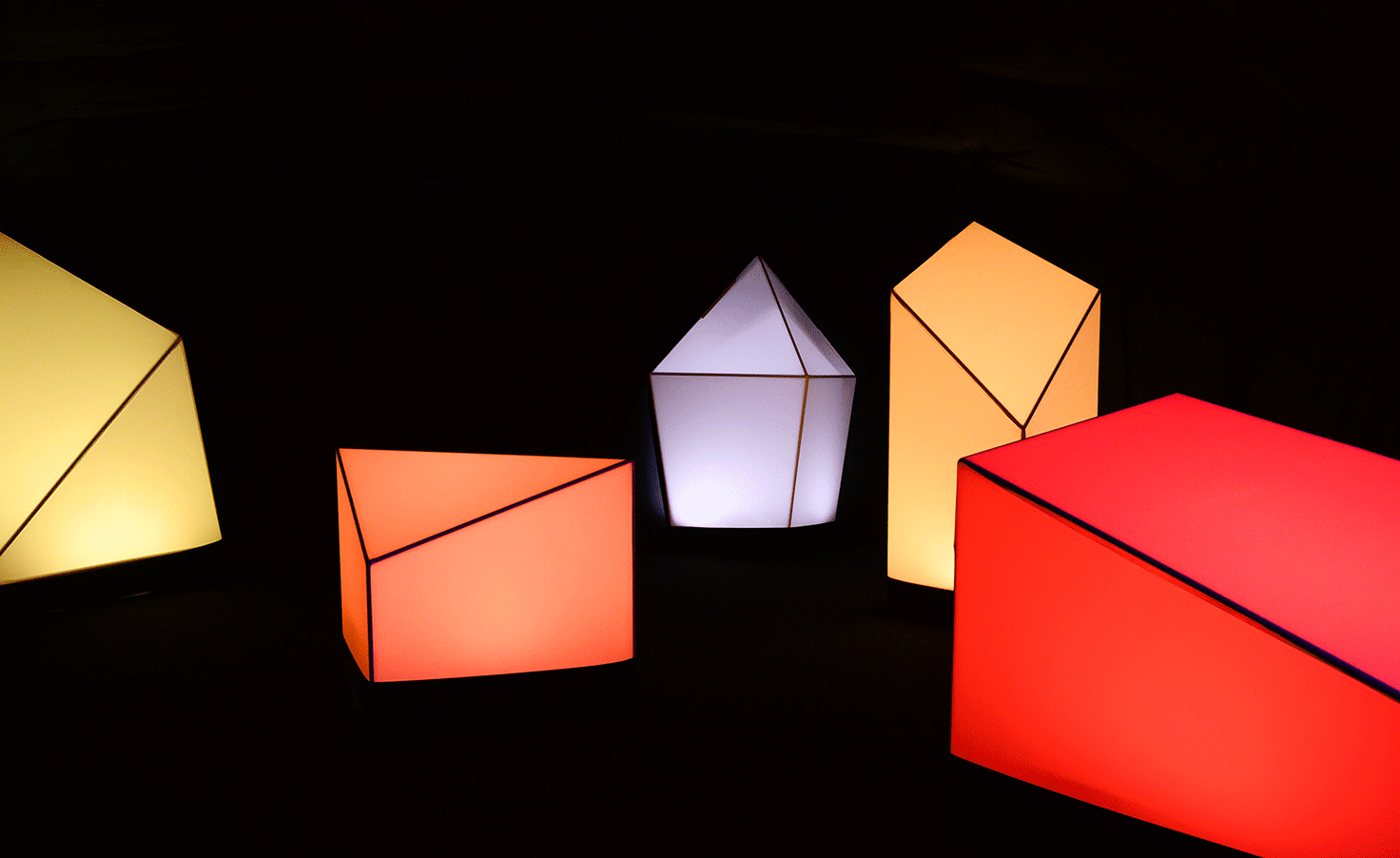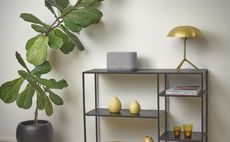Ivy Ross judges Wallpaper* Design Awards 2021
Ivy Ross, the vice president of design for hardware at Google, on the challenges of designing during a pandemic, and her thoughts on our annual Wallpaper* Design Award honours
- (opens in new tab)
- (opens in new tab)
- (opens in new tab)
- Sign up to our newsletter Newsletter
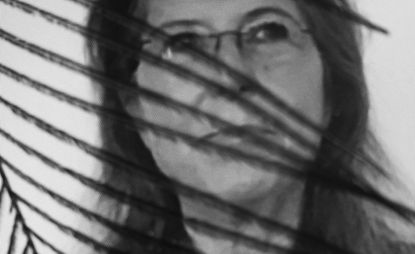
2020 is likely to be henceforth known as the year we all brought our workplaces home with us. With this came the challenges of establishing a new work-life balance, re-evaluating our relationship with technology, and maintaining the human-to-human connection online, which everyone will continue to navigate in 2021 and beyond.
Ivy Ross, the vice president of design for hardware at Google, knows all about treading the line between technology and the human experience. Since forming the department in 2016, Ross has led her team to launch and establish Google’s family of consumer hardware products, which have collectively earned over 125 global design awards. From the Google Pixel smartphones – its fifth (and most recent) iteration is waterproof and packs in more technology and a better camera than before, at a more affordable price point – to the Nest line of speakers that boasts high quality sound with intuitive smart capabilities, Google’s product suite not only gives the competition a run for its money, but is distinctive in its bold, tactile and emotional design too.
Ross has been crucial in creating Google’s intuitive design signature. An accomplished designer and jewellery artist in her own right, she is passionate about combining art and science to bring ideas to life, and believes in the central role of human potential and relationships. In 2019, she placed the burgeoning field of neuroaesthetics at the heart of an interactive installation in Milan for Salone del Mobile (W*242). Created by Google in partnership with Johns Hopkins University’s Arts + Mind Lab, the experience was backed up with data to show that an aesthetically pleasing environment truly has a positive impact on the brain.
With these principles in mind, Google’s latest consumer products, launched in October 2020, are a welcoming vision of rounded edges, soft surfaces and soothing pastel colours like sage green and sky blue. From the seamless integration of Google’s smart technology in the Nest products (Google Assistant can be used, for example, to control lighting, start a playlist or even a morning routine that can involve skimming news headlines and brewing coffee) to the launch of Google TV, a new foray into entertainment that promises to take the pain out of finding something to watch by tracking trends and browsing behaviour, Google has re-tooled the ways we use technology in a bid to make daily life a little easier.
This is Mother Nature telling us, stop, go to your rooms, think about what you’ve been doing for the last 50 years and don’t come out until you have a more balanced perspective on a lot of things.
This, of course, was put to the test when Google, like so many other companies, mandated that all of their employees work from home from mid-March. Ross and her team had to rethink the way they finesse and deliver designs for products that will launch in 2021 and even 2022.
‘Design is about solving problems and what [our team] has done is figure out how to solve the problem of not being together. I’ve [only] been down to the design headquarters four or five times in the last year, when we absolutely had to be around the table at the same time, and then only with one or two folks in a building that was designed for 300,’ she shares, adding, ‘Everything [now] is just a little harder, especially since we’re manifesting physical objects. What really saved us is the ability to have prototypes either delivered or shipped from house to house. We’re such a need-to-touch-and-feel kind of group.’
Not long after California went into lockdown, Ross put together a group of 12 colleagues, who ‘would talk every week about this idea of regeneration, what we think this all means, and what would be the long-term outcomes.'
She says, ‘I then invited my whole team to write fairy tales from the future. A fairy tale starts once upon a time, it always has a happy ending and there’s a lesson in between. I invited them to create a fairy tale in five years’ time that looks back at this invisible virus that locked everyone in their houses.’
‘It's important we, as the creatives in the company, start putting our minds towards what we think the new normal should be. I have a very diverse team and I wanted to see where the patterns are. I got about 50 stories, I picked 20 of them and we produced a little book called Fairy Tales from the Future, which I gave to all the execs in the hardware group. People said it immediately helped set them up for the possibilities early on, rather than focus on the sorrow.’
Personally, Ross finds the notion of wellbeing to be the most pertinent issue arising from the global pandemic. ‘Since the Industrial Revolution, we’ve just kept working, optimising, producing more. We’ve flatlined as a society and have forgotten what makes us feel alive, what makes us happy, what’s essential, [and] what is life-reinforcing. The opposite of work for me is play. Playing is doing something different from what we do day in and day out but without an outcome. We just haven’t given ourselves permission to play enough.’

The design of the Google Pixel phone case
She continues, ‘Just as important is the wellbeing of the planet. We [haven’t] stopped to think about what we are doing to the planet in our different behaviours. In some ways this is a big warning. This is Mother Nature telling us, stop, go to your rooms, think about what you’ve been doing for the last 50 years and don’t come out until you have a more balanced perspective on a lot of things.’
It comes as no surprise then that Ross cast her votes with both sustainability and equality in mind. Her choice for ‘Life Enhancer of the Year’, the winning portable handwashing station by NMBStudio, impressed her not only with its simplicity in design but also ‘its ability to be fabricated locally by the community, for the community. We should be creating more designs that can manifest this way in the world,’ she says.
Pei-Ru Keh is the US Editor at Wallpaper*. Born and raised in Singapore, she has been a New Yorker since 2013. Pei-Ru has held various titles at Wallpaper* since she joined in 2007. She currently reports on design, art, architecture, fashion, beauty and lifestyle happenings in the United States, both in print and digitally. Pei-Ru has taken a key role in championing diversity and representation within Wallpaper's content pillars and actively seeks out stories that reflect a wide range of perspectives. She lives in Brooklyn with her husband and two children, and is currently learning how to drive.
-
 Cerith Wyn Evans: ‘I love nothing more than neon in direct sunlight. It’s heartbreakingly beautiful’
Cerith Wyn Evans: ‘I love nothing more than neon in direct sunlight. It’s heartbreakingly beautiful’Cerith Wyn Evans reflects on his largest show in the UK to date, at Mostyn, Wales – a multisensory, neon-charged fantasia of mind, body and language
By Harriet Lloyd-Smith • Published
-
 Nifemi Marcus-Bello is the Nigerian designer shaping Africa’s designscape
Nifemi Marcus-Bello is the Nigerian designer shaping Africa’s designscapeAmong Wallpaper’s ‘Future Icons’, Lagos-based designer Nifemi Marcus-Bello speaks of creating a local manufacturing network and documenting design production in Africa
By Ugonna-Ora Owoh • Published
-
 Luxury loungewear brands to hibernate in this winter
Luxury loungewear brands to hibernate in this winterAs days get shorter and temperatures drop, we present the best loungewear for luxuriating in this autumn and winter, from brands including Loro Piana, Raey, Extreme Cashmere and more
By Tilly Macalister-Smith • Published
-
 The finest Google Doodles of all time
The finest Google Doodles of all timeOn 20 August 1998, a week before a two-year-old Google become an incorporated company, founders Larry Page and Sergey Brin were heading to Burning Man festival. To mark themselves ‘out of office’ on their email signatures, they decided to overlay the famous Burning Man stick-figure on the Google logo (which then came with a Yahoo-style exclamation mark, as if it needed to announce itself). The idea lay dormant until 2010, when then-intern Dennis Hwang (who went onto become Google webmaster, amongst other more recent titles) was tasked with decorating the logo for Bastille Day, sparking eight years of marking important moments in history with a graphic, digital ephitaph. What started as an ‘out of office’ scribble has become an artform, celebrating Calder to Kadinsky; Zaha Hadid to Mies van der Rohe.
By Elly Parsons • Last updated
-
 Pixel 6 Pro is ‘premium redefined’ says Google’s Ivy Ross
Pixel 6 Pro is ‘premium redefined’ says Google’s Ivy RossIvy Ross, Google’s vice president of Design for Hardware Products, on the design decisions behind the new Pixel 6 and Pixel 6 Pro phones
By Jonathan Bell • Last updated
-
 The new Google Nest Hub is an alarm clock on steroids
The new Google Nest Hub is an alarm clock on steroidsMeet your new, improved and super smart bedtime companion
By Jonathan Bell • Last updated
-
 WeTransfer wins Best Digital Platform: Wallpaper* Design Awards 2021
WeTransfer wins Best Digital Platform: Wallpaper* Design Awards 2021WeTransfer has long been within our essentialist digital toolkit
By Jonathan Bell • Last updated
-
 Boucheron wins Best Technical Triumph: Wallpaper* Design Awards 2021
Boucheron wins Best Technical Triumph: Wallpaper* Design Awards 2021The heavenly high jewellery collection from Boucheron showcases a dazzling level of technical know-how
By Hannah Silver • Last updated
-
 Google steers towards a positive future with its latest tech toolkit
Google steers towards a positive future with its latest tech toolkitFocusing on conscious design and minimal finishes, Made by Google launches its fourth range of hardware
By Sujata Burman • Last updated
-
 Step inside a song with Sonos and Google Assistant in London
Step inside a song with Sonos and Google Assistant in LondonSound expert Sonos makes noise at a new exhibition, asking: ‘What does music really do to the mind?'
By Elly Parsons • Last updated
-
 Google and Harman Kardon’s Citation 300 speaker is unfussy, powerful and convenient
Google and Harman Kardon’s Citation 300 speaker is unfussy, powerful and convenientBy Jonathan Bell • Last updated
